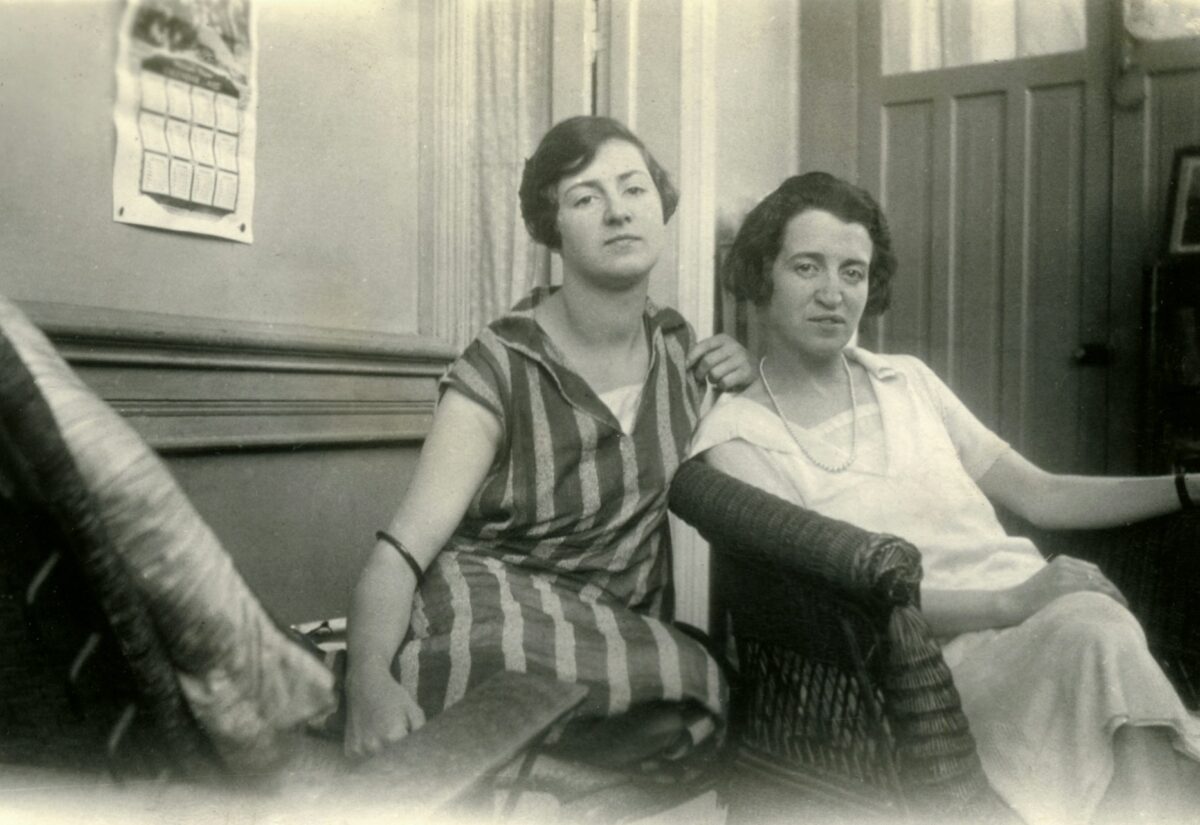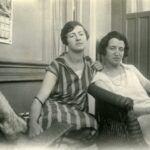Forgotten 1920s British Slang Terms That Should Make A Comeback
- Jennifer Still
- May 14, 2025
 Unsplash/Brett Jordan
Unsplash/Brett JordanThe 1920s were a period of immense social transformation in Britain. The trauma of the First World War still lingered, but so did a growing sense of optimism, particularly among the younger generation, who were eager to cast off the gloom of the previous decade. With jazz spilling out of club doors, motorcars becoming increasingly common, and a newfound taste for rebellion in the air, language was no exception to the change. British slang during this era was bold, cheeky, and full of flair—an extension of the era’s embrace of modernity and mischief. Some of it has survived, sneaking its way into our present-day conversations, but much of it has sadly slipped into obscurity. Here’s a look at some charming, colourful, and completely underrated 1920s British slang terms that truly deserve a second chance.
Giggle water
This delightful term for alcohol, usually of the bubbly variety, perfectly captures the spirit of the Roaring Twenties. Whether you were sipping champagne in a smoky speakeasy, enjoying gin from a teacup in someone’s lounge, or sharing a round of cocktails at a jazz party, a glass of giggle water promised a good time. The phrase doesn’t just hint at drinking—it evokes the laughter, looseness, and carefree attitude that often came with it. And let’s be honest, isn’t it far more fun to say than “booze”?
The cat’s whiskers
To call something “the cat’s whiskers” was to say it was the height of style and sophistication. This playful compliment applied to everything from snazzy shoes to slick haircuts, clever plans to charming people. It shared company with similar phrases like “the bee’s knees” and “the monkey’s eyebrows,” all of which captured a sense of delighted approval. While the animal-themed expressions were a bit whimsical, they were always sincere. Bringing this one back could add some much-needed sparkle to today’s tired compliment arsenal.
Know your onions
This quirky phrase meant that someone was well-informed or competent in a particular subject. If you “knew your onions,” you weren’t easily fooled. You were switched on, tuned in, and knew what you were talking about. Whether in politics, music, cooking, or business, this was a phrase of respect. And it still works just as well today. Imagine how satisfying it would be to hear someone described not as an “expert,” but as a person who really knows their onions.
On the toot
If you were “on the toot,” you were out on the town, likely drinking, dancing, and generally getting up to a bit of trouble. It had a cheeky, disapproving edge to it, often used to describe someone who might’ve lost track of time or sense. Picture a mate showing up the next day looking worse for wear after a big one, and someone saying, “Were you on the toot last night?” It’s wonderfully descriptive, and still perfectly relevant to modern nights out.
Hotsy-totsy
Borrowed from American slang but fully embraced by stylish Brits of the time, “hotsy-totsy” meant something (or someone) was just right. Attractive, fashionable, excellent—it was a breezy and confident way to show approval. It could be flirtatious or simply admiring, depending on the context. There’s a lightness to it that makes it less intense than calling someone “gorgeous” and more charming than simply saying they look nice. It’s flattery, 1920s-style.
Half-cut
A term that has managed to cling on in certain corners of Britain, “half-cut” refers to that wonderfully wobbly middle-ground between sober and sloshed. You’re not out of control, but you’re definitely not operating at 100%. It’s much more vivid than saying someone is “tipsy.” Iit suggests a sense of momentum, a night gathering speed. It’s a phrase that tells its own story, often followed by: “And then it all went sideways.”
She’s got the morbs
First appearing in Victorian slang but still lingering into the 1920s, having “the morbs” meant you were in a bit of a mood—a temporary funk or spell of low spirits. It wasn’t clinical, it wasn’t serious. It was more about feeling gloomy for no good reason, something we can all relate to. There’s a melodramatic flair to it that makes it oddly endearing, as if sadness itself were being taken with a touch of theatre. Bring it back, and you’ve got a much more charming way to explain a bout of Sunday blues.
Tickety-boo
An expression of assurance, “tickety-boo” meant everything was in order and running smoothly. It’s a phrase full of bounce, one that’s almost musical. You could use it to describe anything from a stress-free train journey to a household running like clockwork. It’s the kind of word that lifts a conversation just by being in it. If we’re trying to make the world a little more pleasant, sprinkling in a bit of “tickety-boo” wouldn’t be a bad start.
Lounge lizard
A lounge lizard was a certain kind of man—suave, well-dressed, and often a bit too smooth for his own good. He lingered in hotel lobbies, dance halls, and cocktail bars, always ready with a compliment and a sly smile. These were the pre-digital-age charmers, equal parts allure and amusement. It’s a term that’s playful and loaded with character, and it perfectly describes a type that still very much exists today, even if their lounges now include dating apps.
Bags o’ mystery
Sausages have always had a bit of a reputation for containing questionable ingredients, and the 1920s nickname “bags o’ mystery” nailed the public’s suspicion. The phrase is equal parts funny and accurate—a perfect example of British humour meeting culinary realism. It’s ideal for referring to those dubious late-night snacks or budget bangers, and would make an excellent addition to any pub menu with a sense of humour.
Rhubarb
Used as a slang term for nonsense or meaningless chatter, “rhubarb” was often mumbled in stage and radio background scenes to mimic crowd noise. Over time, it came to refer to empty conversation in general. Someone going on and on without saying much? They’re talking rhubarb. It’s got a soft tone but sharp meaning, a gentle jab rather than outright criticism. It’s due for a return, particularly in an age full of waffle.
Cop a packet
To “cop a packet” was to get into trouble, usually as a result of bad behaviour or saying something you shouldn’t. It could also refer to receiving a beating or comeuppance. It’s a more vivid way of saying “got what was coming to them,” and its punchy tone gives it extra impact. Great for storytelling, especially if your tale includes a dramatic twist.



